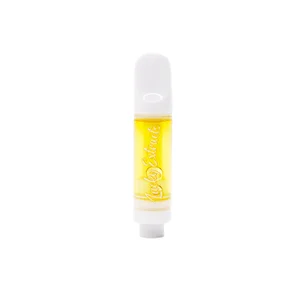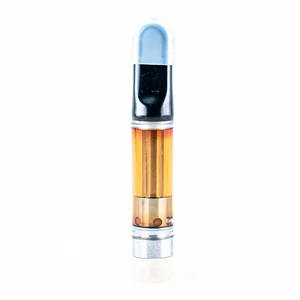Table of Content
- Benefits and Effectiveness of Cannabis in Treating MS Symptoms
- Cannabis Treatment Options for MS
- Risks and Considerations of Cannabis Use in MS
- Conclusion
- FAQ
Multiple sclerosis (MS) is a complex neurological condition that affects millions of people worldwide, causing a wide range of physical and cognitive symptoms. For individuals living with MS, finding effective treatments to manage these symptoms and improve their quality of life is paramount. In recent years, cannabis for multiple sclerosis has emerged as a topic of interest and a source of potential relief.
With its therapeutic compounds known as cannabinoids, cannabis has sparked intrigue and scientific exploration as a possible complementary approach to symptom management. In this blog, we will delve into the science behind cannabis for multiple sclerosis, examining how it interacts with the body and exploring the potential benefits it may provide for individuals navigating the challenges of this condition. By understanding the scientific foundations, we aim to shed light on the potential of cannabis as a tool for alleviating multiple sclerosis symptoms and improving the well-being of those living with the condition.
Benefits and Effectiveness of Cannabis in Treating MS Symptoms
A. Muscle Spasticity
Cannabis-based therapies have shown limited effectiveness in reducing objective measures of spasticity, such as muscle tone and stiffness. Clinical studies have provided mixed results, with some finding that it is proven or highly likely to help ease stiffness and muscle spasms that are common with MS and others showing no significant changes. However, it is important to note that these studies primarily focus on objective measures and may not capture the full picture of patients’ experiences.
On the other hand, when it comes to patient-reported spasticity symptoms, cannabis-based therapies have shown more consistent effectiveness. Many individuals with multiple sclerosis have reported subjective relief from muscle spasticity when using cannabis products. Real-life examples abound where individuals have experienced a reduction in muscle stiffness and spasms, leading to improved mobility and a better quality of life.
B. Pain Relief
Cannabis therapies hold the potential to ease pain associated with multiple sclerosis. Neuropathic pain, as well as pain resulting from muscle spasms, can be particularly challenging for individuals with MS. Some cannabinoids found in cannabis have demonstrated analgesic properties, providing relief from chronic pain. Numerous anecdotal accounts from people with MS suggest that cannabis products have helped them manage their pain more effectively.
However, it is crucial to approach the use of cannabis for pain relief with caution. The effects of cannabis can vary among individuals, and healthcare professionals emphasize the need for personalized approaches. Factors such as dosage, strain selection, and method of consumption can significantly impact the outcomes. Additionally, potential side effects and interactions with other medications should be carefully considered and discussed with a healthcare provider.
C. Bladder Problems
A cannabis-based oral spray called nabiximols has shown promise in reducing urinary frequency in individuals with multiple sclerosis. Clinical studies have indicated that nabiximols may help improve bladder control and reduce the urgency to urinate. This can be particularly beneficial for individuals who experience bladder dysfunction as a result of MS.
However, the effectiveness of cannabis-based therapies for managing bladder incontinence appears to be limited. While some anecdotal reports suggest positive outcomes, scientific evidence supporting their efficacy in this specific aspect of MS-related bladder problems is still relatively scarce. Further research is needed to explore the full potential and limitations of cannabis in addressing incontinence.
D. Other Effects
Cannabis products have shown potential benefits in improving sleep quality and reducing fatigue among individuals with multiple sclerosis. Sleep disturbances are common in MS, and the sedative effects of certain cannabinoids may help promote better sleep and alleviate fatigue. Real-life stories highlight how cannabis has allowed individuals to experience more restful nights, leading to increased energy and improved overall well-being.
When it comes to treating tremors associated with multiple sclerosis, the effectiveness of cannabis products appears to be limited. While some anecdotal reports suggest temporary relief from tremors, scientific evidence supporting their use in this regard is currently insufficient. More research is necessary to understand the potential role of cannabis in managing tremors effectively.
Cannabis Treatment Options for MS
A. Consumption Methods: Inhalation, Ingestion, Oral Sprays, and Topical Application
When it comes to utilizing cannabis as a treatment option for multiple sclerosis (MS), there are various consumption methods available. Inhalation, through smoking or vaporizing, allows for the rapid onset of effects. Ingestion involves consuming cannabis-infused products such as edibles or capsules, which take longer to take effect but provide longer-lasting relief. Oral sprays, such as nabiximols (Sativex), offer a convenient and controlled method of administration. Additionally, topical application of cannabis-based creams or lotions allows for localized symptom relief, such as reducing muscle pain or stiffness.
B. Clinical Trials on the Effects of Oral Cannabis Extracts (OCE) in Treating MS Symptoms
Numerous clinical trials have been conducted to evaluate the effects of oral cannabis extracts (OCE) on MS symptoms. These studies have explored the potential benefits of OCE in reducing muscle spasticity, and pain, and improving overall quality of life. While results have been promising, it’s important to note that individual responses to OCE can vary. Factors such as dosage, composition, and duration of treatment can influence the outcomes.
C. Nabiximols (Sativex) Oral Spray’s Significant Symptom Relief in MS Patients
Nabiximols, marketed as Sativex, is an oral spray containing a balanced ratio of THC and CBD. It has demonstrated significant symptom relief in individuals with multiple sclerosis. Clinical trials have shown that nabiximols can effectively reduce muscle spasticity, improve mobility, and alleviate pain associated with MS. The convenience of an oral spray makes it an attractive option for those seeking targeted relief from specific symptoms.
D. Regulatory Approvals and Availability of Cannabis-Based Therapies
The regulatory landscape surrounding cannabis-based therapies for MS varies across different countries and U.S. states. Some regions have approved specific cannabis medications, such as Sativex, for the treatment of MS symptoms. However, it’s important to note that regulatory approvals can differ, and the availability of cannabis-based therapies may be limited in certain jurisdictions. Patients should consult with healthcare professionals to understand the legal status and accessibility of these treatments in their specific location.
Risks and Considerations of Cannabis Use in MS
A. Unwanted Side Effects Reported in Clinical Trials
While cannabis-based therapies can provide symptom relief, it’s crucial to acknowledge the potential for unwanted side effects. Clinical trials have reported adverse effects such as dizziness, fatigue, cognitive impairment, dry mouth, and changes in mood. These side effects can vary in severity and may impact individuals differently. Monitoring and managing these effects, along with adjusting dosage and formulation, can help optimize the benefits while minimizing unwanted outcomes.
B. Potential Drug Interactions and the Importance of Consulting a Healthcare Professional
Cannabis can interact with other medications that individuals with MS may be taking. It’s vital to consult a healthcare professional before incorporating cannabis into one’s treatment plan. Healthcare providers can assess potential drug interactions and provide guidance on appropriate dosages, administration methods, and potential risks. This collaborative approach ensures the safety and effectiveness of cannabis-based therapies when used alongside other MS treatments.
C. Legal Status of Cannabis Use for Medicinal Purposes in Different Countries and U.S. States
The legal status of cannabis for medicinal purposes varies across jurisdictions. Some countries and U.S. states have legalized medical cannabis, allowing individuals with MS to access these treatments under certain conditions. However, it’s essential to stay informed about the specific laws and regulations in one’s location and adhere to them accordingly. Engaging in legal and regulated channels ensures the safety, quality, and legality of cannabis-based therapies.
Conclusion
Cannabis-based therapies have shown promise in providing relief for various MS symptoms, including muscle spasticity, pain, and overall well-being. Clinical trials and real-life examples demonstrate the potential benefits of cannabis in managing these symptoms. However, it’s important to recognize that individual responses can vary, and cannabis may not be suitable or effective for everyone. Personalized approaches, careful monitoring, and ongoing communication with healthcare professionals are essential for optimizing treatment outcomes.
Before considering cannabis as a treatment option for MS, it is crucial to consult with a healthcare professional. They can provide personalized guidance, evaluate potential risks and benefits, and consider individual medical histories and circumstances. Professional medical advice ensures that decisions regarding cannabis use align with the patient’s overall treatment plan and prioritize their well-being.
FAQs
Can CBD reverse MS?
No, CBD cannot reverse multiple sclerosis (MS). While CBD and other cannabinoids found in cannabis may provide symptom relief and potential benefits for individuals with MS, they do not reverse the underlying condition itself. MS is a chronic autoimmune disease that affects the central nervous system, causing damage to the protective covering of nerve fibres. While CBD may help manage certain symptoms, it does not cure or reverse the disease.
What is the use of cannabis and cannabinoids in treating symptoms of multiple sclerosis?
Cannabis and cannabinoids have shown promise in treating symptoms associated with multiple sclerosis (MS). These compounds can help alleviate muscle spasticity, reduce pain, improve sleep, and enhance the overall quality of life for some individuals with MS. The therapeutic effects of cannabis and cannabinoids are believed to be due to their interaction with the body’s endocannabinoid system, which plays a role in regulating various physiological functions.
Could you live a normal life with MS?
Living a “normal” life with MS is subjective and can vary from person to person. While MS is a chronic condition that can present challenges, many individuals with MS are able to lead fulfilling and meaningful lives. With the right support, treatment, and lifestyle modifications, individuals with MS can manage their symptoms, pursue their goals, and maintain a good quality of life.
Can nerves heal from MS?
In multiple sclerosis (MS), the damage to the nerves is primarily caused by inflammation and the immune system’s attack on the protective covering of nerve fibres. The extent of nerve damage and the potential for repair or healing can vary among individuals. While the body has some natural mechanisms for nerve repair, the ability to fully regenerate damaged nerves in MS is limited.






